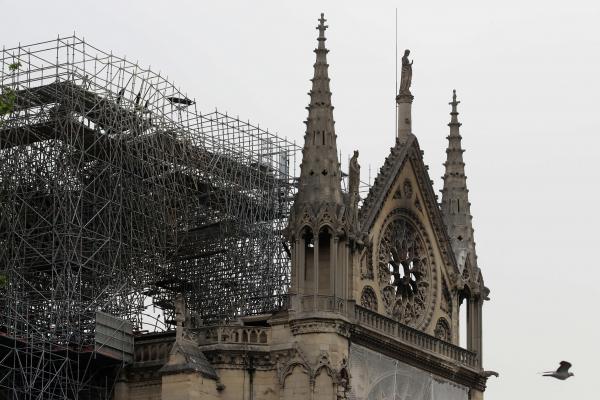Apr 30, 2019
During the most consequential ceremonial week in the Christian liturgical year, Holy Week, one of the most iconic Christian structures was reduced to an unholy sight. For hours, we could not look away as flames marching toward the sky swallowed an 800-year-old reminder of France’s Catholic story. A week after the world-jolting fire ravaged Notre Dame de Paris, the restoration fund now boasts more than $1 billion in pledges.
Read the Full Article

Already a subscriber? Login
